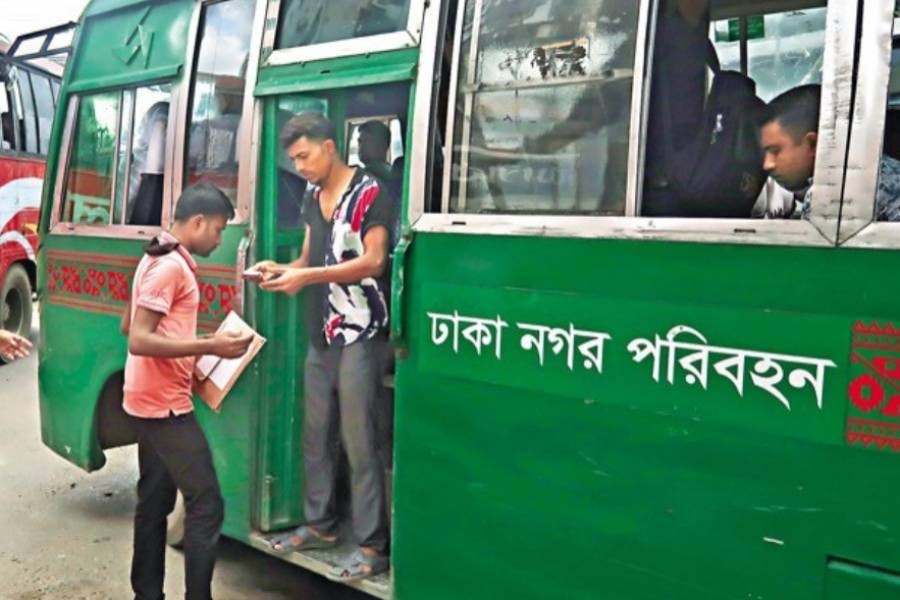Managing the bus-based public transport in Dhaka is a daunting task, mainly due to the chaotic and unplanned development of the sector. Bus operators and commuters are hostages to some powerful vested interest groups. These groups, backed by leading political parties, set the rules and control operation of public buses in Dhaka and adjoining areas. Even law enforcement agencies find themselves powerless before these groups which have compelled the authorities to introduce several unorganised bus routes. The net result is unruliness on roads and the perpetual harassment and suffering of millions of commuters. Most public buses have defaced and tattered exteriors and awful interiors like narrow access and seats, dirty floors and broken windows. Air pollution from these shabby buses is also causing health hazard.
Hundreds and thousands of daily passengers are compelled to commute by these buses in a state of mental agony. They have resigned to this shabby condition.
With a view to providing some relief to the commuters, the authorities are trying to bring some discipline to roads by reducing and rearranging the multiple bus routes to a limited few. As part of the move, all buses will be operated under a single company on a dedicated route so that there will be no rush or competition and bus owners will get the revenue in proportion. Though most bus owners welcome the idea, those who lead the trade unions and beneficiaries of unearned incomes in the sector opposed the move. Nevertheless, the two mayors of the city corporations in Dhaka, having support from the government's top levels, finally introduced the first bus service named Dhaka Nagar Poribahan last year on Ghatarchar (in Keraniganj) to Kanchpur (in Narayanganj) route as a trial run. As the service gets popular and the test run seems successful, two more new routes have been introduced since October this year.
Currently, there are 150 new buses carrying passengers on these routes under the Nagar Paribahan programme. The passengers can board and disembark at dedicated stoppages and have to collect electronic tickets. No standing passenger is allowed, although it is difficult to maintain the rule during rush hours. Besides green-coloured mini-buses, double-decker buses of the Bangladesh Road Transport Corporation (BRTC) also ply on these routes under the arrangement. These buses are clean and primarily commuter-friendly.
Amidst chaos on the roads, the service is struggling from the beginning to operate smoothly. Traffic congestions on different segments of roads make it difficult for the Nagar Poribahan buses to maintain the time to reach the next stoppages in many cases.
A lack of cooperation of some passengers also creates unnecessary disorder from time to time. BRTC's double-decker bus drivers face more problems as there is no helper in these two-door buses. Nevertheless, these buses indicate that bringing some discipline to public transport is possible. The service also shows that decent and clean public buses are a priority for Dhaka.
Dhaka Nagar Poribahan has, however, a long way to go. With growing popularity, the service will face many peculiar obstacles, and the authorities need to remove those carefully. Continuous monitoring is necessary. The immediate challenge is to bring other buses operating on the same routes now under the Nagar Poribahan banner.


